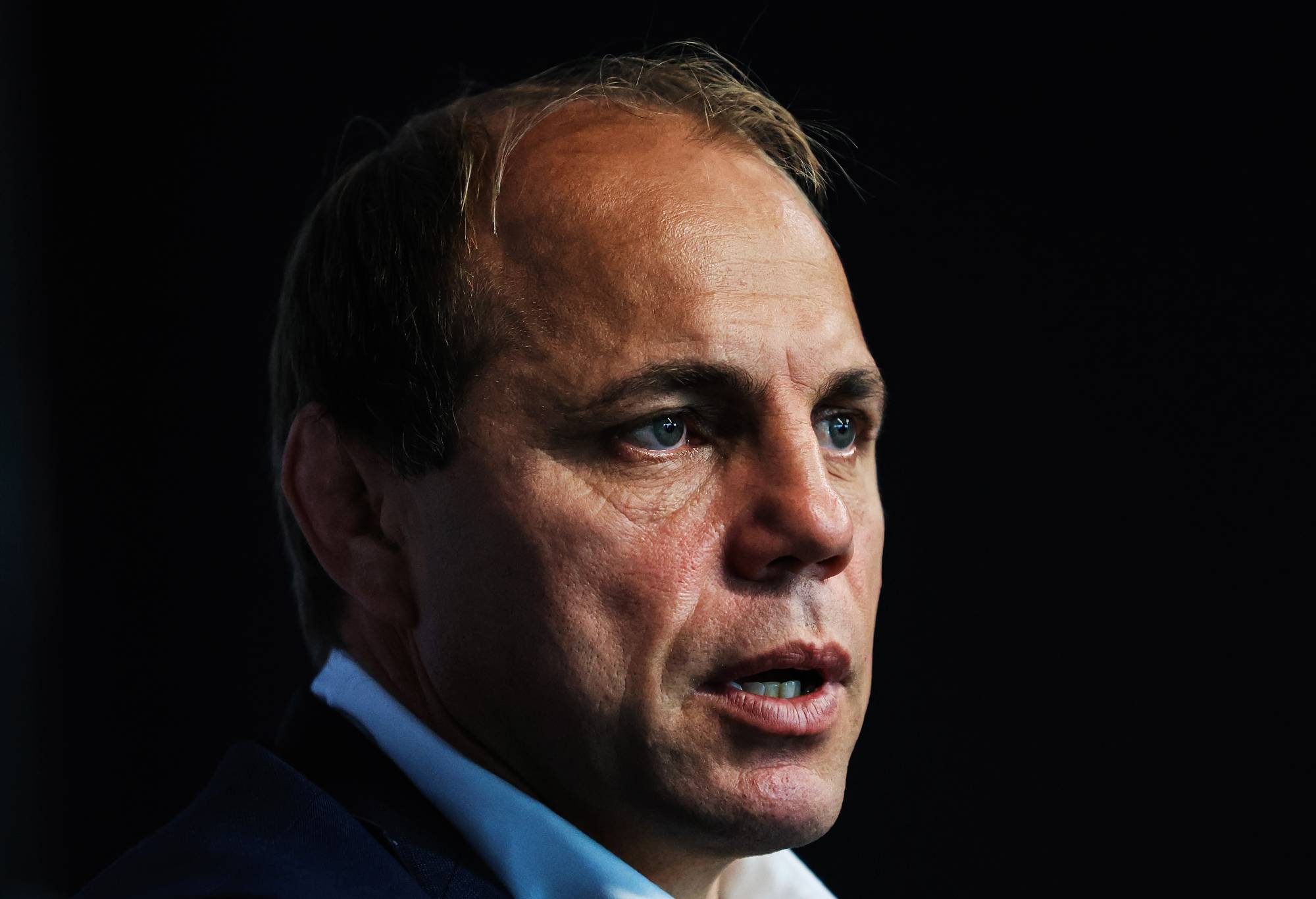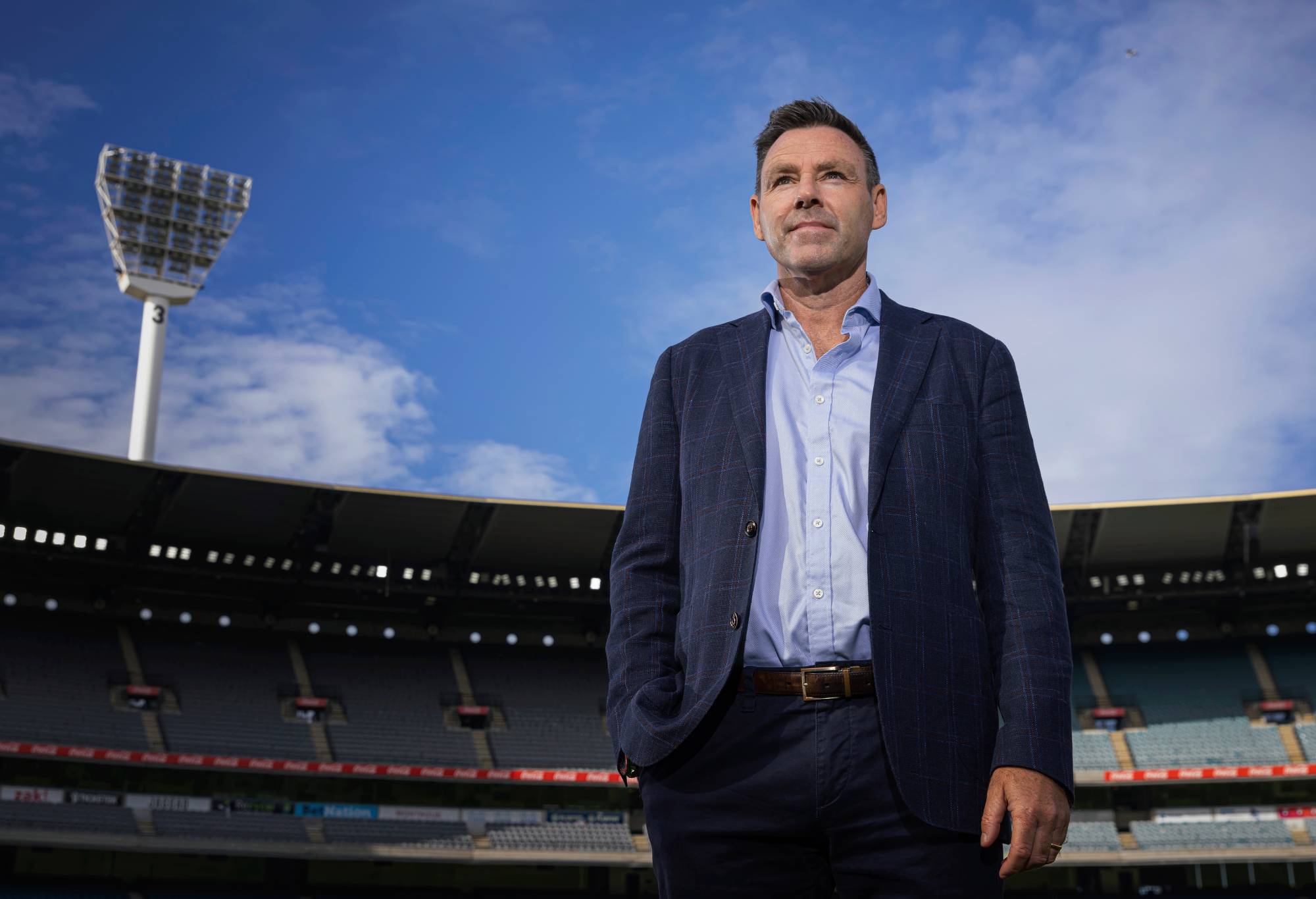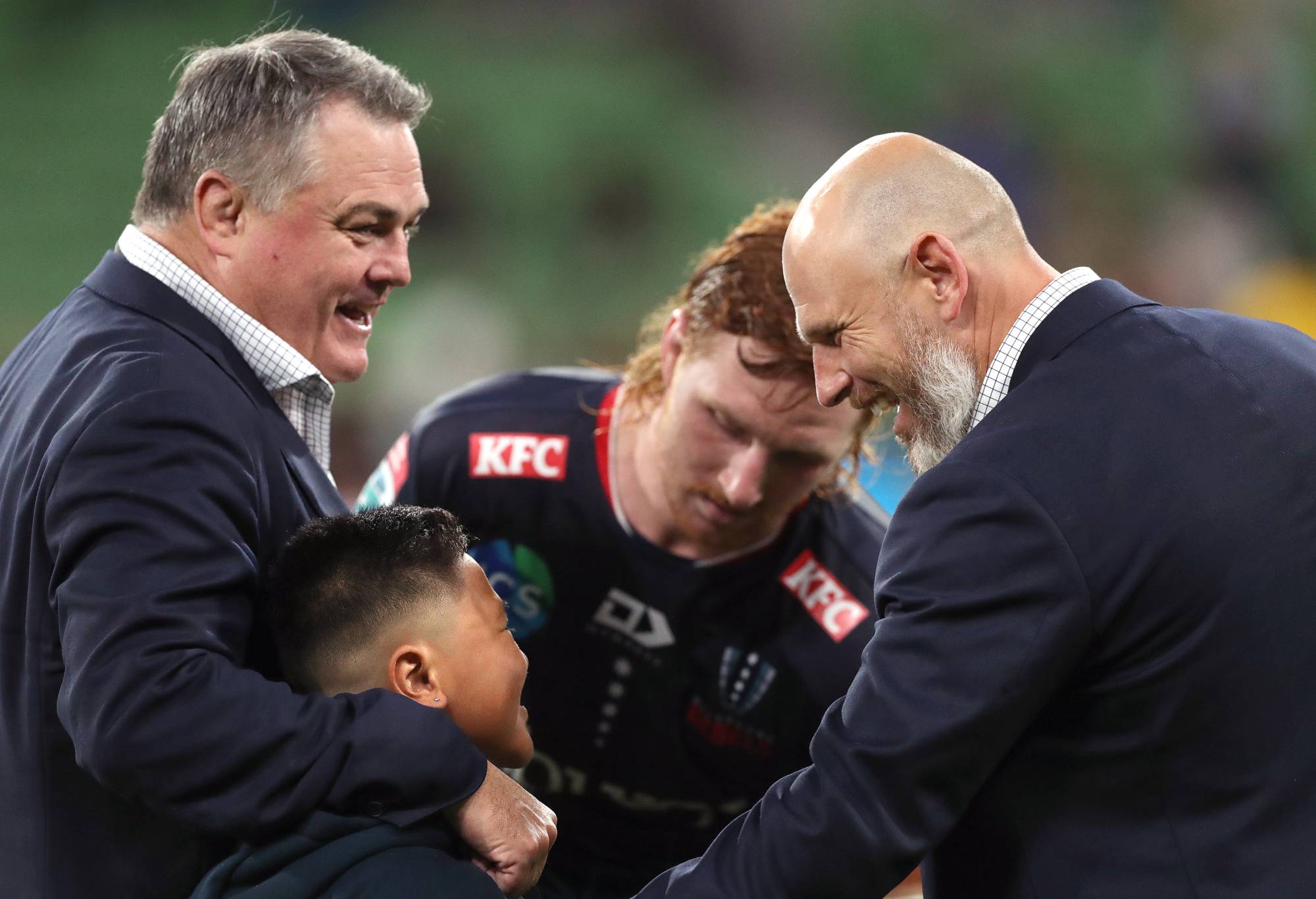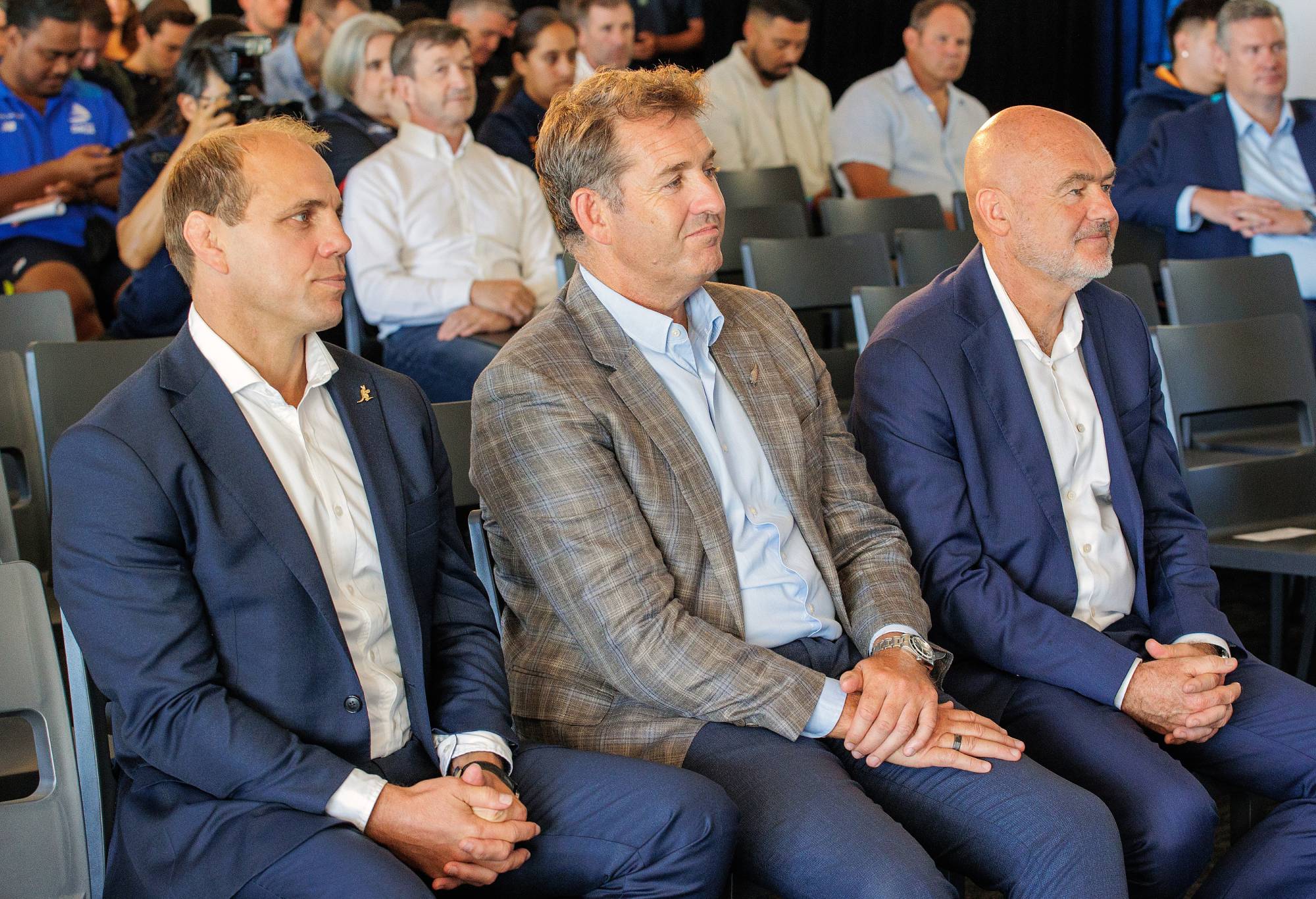Update: Melbourne Rebels CEO Baden Stephenson and nine other members of the Super Rugby club’s administrative staff have been made redundant.
And in one of the strongest indications yet that the Rebels won’t continue beyond 2024, the team’s coaches have been put on four-month contracts to see out the season.
As well as Stephenson, five administration staff, two casual and three contractors were not offered new contracts by RA through until June 30.
Rugby Australia confirmed the news on Thursday morning, thanking Stephenson for his tenure while adding that all 17 high performance members had been retained.
“Yesterday (Wednesday), the administrator addressed Rebels staff (excluding players) to inform them of the administrator’s decision to make their roles redundant – a step that is common practice in an administration process,” the statement read.
“RA continues to engage with the administrator, government and various relevant stakeholders on the future of the Rebels beyond this season. It is expected that a decision on that future will be made before the end of Super Rugby Pacific, and therefore before the conclusion of staff contracts.”

Rugby Australia CEO Phil Waugh will address the Rebels’ high performance and commercial staff on Thursday. (Photo by Mark Evans/Getty Images for Rugby Australia)
Rugby Australia chief executive Phil Waugh flew to Melbourne on Wednesday afternoon and will address the Rebels, including the high performance team and commercial department, on Thursday.
Stephenson, who had been the CEO of the Rebels since 2017, hit out at Sydney journalists for death riding the franchise in December.
“In response to recent negative media coverage originating out of Sydney, the Melbourne Rebels wishes to address the speculations and set the record straight,” Stephenson said in a club statement at the time.
“Despite the unfounded speculation circulating in the media, we want to assure our supporters, stakeholders, and the wider community that the Melbourne Rebels’ future is extremely bright. Our club is unwavering in its commitment to excellence both on and off the field in 2024 and will not be distracted by those who are seeking again to harm and disrespect our community.”
Watch every match of Super Rugby Pacific ad-free, live & on demand on the Home of Rugby, Stan Sport

Baden Stephenson was made redundant less than a fortnight out from the start of the 2024 Super Rugby Pacific season. (Photo by Daniel Pockett/Getty Images)
By late January, however, the Rebels were placed in voluntary administration after falling into $20 million of debts, including to the Australian Taxation Office and the Melbourne and Olympic Park Trust.
Auditors from PwC appointed to investigate the club’s finances revealed the Rebels owe $11.6 million to the Tax Office, $5.7 million to board members, and $2.8 million to suppliers – which include sponsors that paid their fees upfront.
Adding to the list of debts is $1.1 million in unpaid stadium fees, $720,000 owed to the State Revenue Office and $250,000 in superannuation owed to employees.
On Monday, administrators said the club has just $17,300 in the bank, with assets consisting of office furniture, gym equipment and two cars.
News of the redundancies broke on the day the Super Rugby Pacific competition was launched in Auckland, with Waugh, New Zealand Rugby CEO Mark Robinson and Super Rugby Pacific chair Kevin Malloy in attendance.
Waugh told reporters in Auckland he would not “put a timeframe” on the Rebels’ future, while Malloy rejected the premise the competition was “under a cloud” and said Super Round would go ahead in Melbourne as planned.
“The focus is to deliver the ’24 season,” Waugh said.
“The players are preparing well, management around the team are preparing well.
“If you think about two different streams, the stream of ’24 and having as little disruption as possible and, a secondary stream, what ’25 and beyond look like.”

Rebels coach Kevin Foote has had contract taken over by Rugby Australia and extended until June 30. (Photo by Kelly Defina/Getty Images)
The precarious nature of the Rebels, where their future could be settled by early next month, shocked many late last year.
It’s believed the Rugby Australia board were horrified by what they saw when they saw some of the Rebels’ finances in November.
It wasn’t long before whispers started about the possibility of a return to four sides, while RA then quickly distanced themselves from trying to take over the Rebels after months of spruiking the need to centralise.
Asked how their financial position deteriorated so quickly, Waugh said the time for introspection would come in the months ahead.
“There’s always going to be a review on how it accelerates to the point of where it’s at,” he said.
“We’re close to all clubs and we’ve made comments around why it’s accelerated.
“Right now it’s around securing the performance of the team, and that’s about delivering a good on-field environment.
“How’d we end up here, how’d it accelerate? We’ll dive into that over the next period in time.”

(L-R) Rugby Australia CEO Phil Waugh, New Zealand Rugby CEO Mark Robinson and Super Rugby Pacific Chair Kevin Malloy at the 2024 Super Rugby Pacific Season Launch on February 14, 2024 in Auckland. (Photo by Dave Rowland/Getty Images for Rugby Australia)
Robinson said he had been briefed really well about the unfolding situation involving the Rebels, which could see the competition return to 11 sides in 2025.
“We caught up this morning the three of us, so we feel really engaged and involved in understanding exactly what Rugby Australia is working through, and part of that conversation is starting to think about the future,” he said.
“Logically 2026 has been the timeframe with media rights cycles if we were to think about if there’d be any material change in the competition. Clearly what’s happened with the Rebels has brought that conversation slightly.”
Wednesday’s meeting comes after two days of conversations between the trans-Tasman neighbours in Sydney.
In a separate interview with The Roar, Waugh described the meetings as “productive” but admitted they were “probably no closer to knowing” a solution the Rebels crisis, as RA tries to assess whether the country will be more or less successful and sustainable with four or five Super Rugby franchises.
“My view has always been about quality and making it the best tournament in the world,” Waugh said. If you do that, you’re going to drive interest and fan-engagement which then appeals to broadcasters.
“I think what’s the relevant jeopardy within the competition, as well as the quality and the execution to then drive value. That’s what the conversations have been around rather than saying this is what the broadcaster wants.”
It’s believed RA’s broadcaster Stan, who hold the rights until the end of next year, haven’t yet been asked what their preferred model is moving forward.
“The most important thing right now is to deliver ’24 because we’re two weeks away from the start of the season,” Waugh said.
“We’ve got so many different stakeholders in this conversation from the Victorian market, broadcasters, New Zealand Rugby, so there’s a lot of scenarios to work through.”
After the competition was changed in 2021 to include Fiji Drua and Moana Pasifika, SANZAAR is considering whether to expand the competition to include more representation from around the Pacific.
Given the television friendly time zones in the Americas, and with the United States of America to host the 2031 men’s World Cup, as well as the women’s World Cup two years later, World Rugby is also interested in whether Super Rugby can play a part in helping develop the game in the mega market.
World Rugby’s vested interest comes after the USA and Canada both missed qualification for the 2023 World Cup in France, with Chili and Uruguay emerging.
Waugh added that expansion wasn’t the immediate focus, but admitted those conversations would commence.
“I think they’re just starting to enter, which goes to what the best competition structure is and how do we ensure there’s that international component to Super Rugby, which has always been appealing, but you need the attractiveness and quality to go with it,” the decorated Wallaby said.
“I think Argentina, the west coast of the US, the west coast of Canada, Japan, all those ideas [hold merit], but we haven’t had meaningful conversations with those unions or even internally with Mark Robinson around is that the direction we want to go.”
































































































